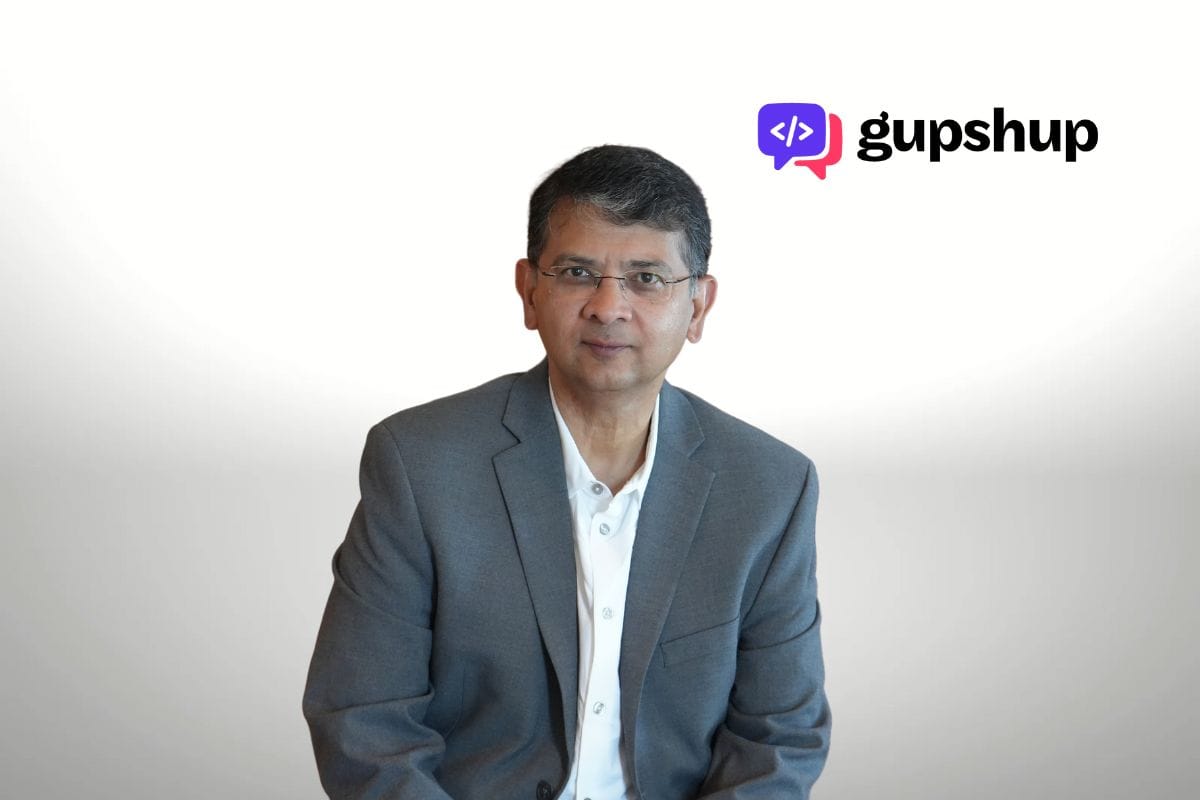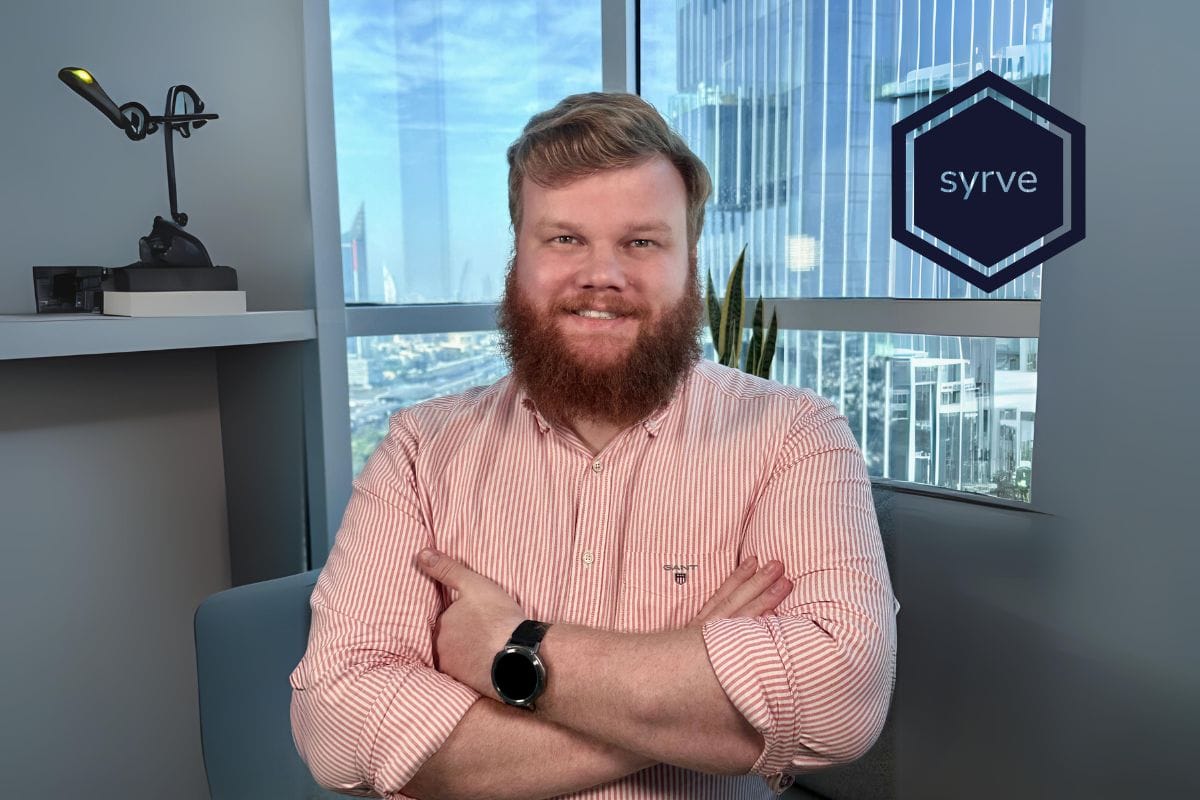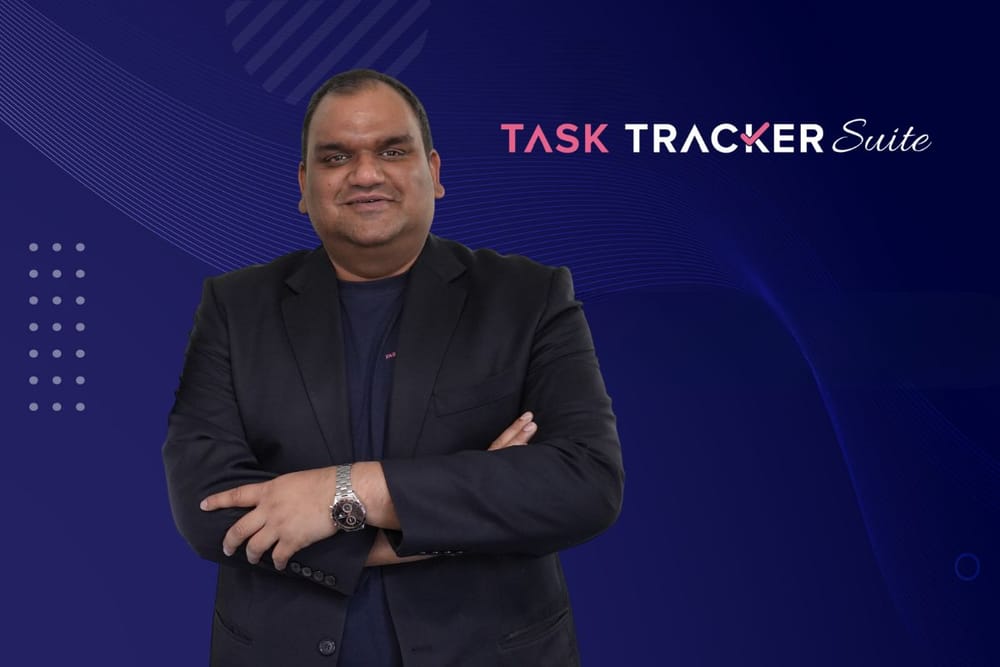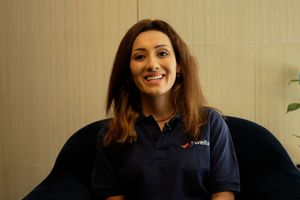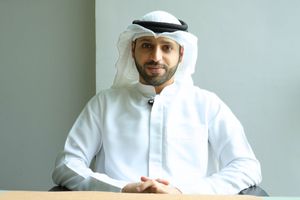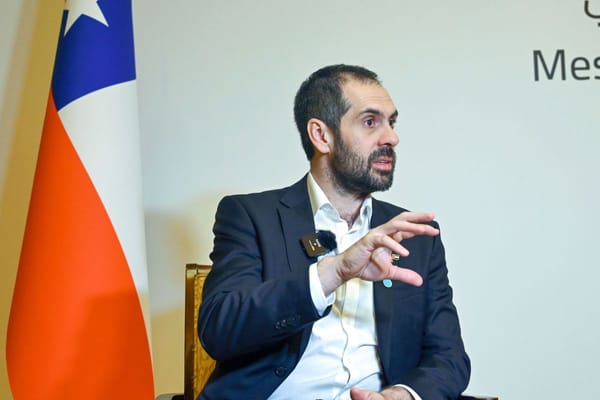In the dynamic world of digital solutions, Rishab Chandra plays a key role as the co-founder and leader of Task Tracker Suite. With an impressive background in SaaS product development, digital marketing, and business consulting, Rishab has leveraged his extensive experience to create innovative tools that address the unique challenges faced by businesses today. Task Tracker Suite, under his guidance, has become India's first vernacular toolkit designed to streamline business processes and enhance operational efficiency.
In this insightful interview, Rishab Chandra delves into the inception and evolution of Task Tracker, and the key factors that differentiate his product in a competitive market. He shares his thoughts on the future of digital innovation, the role of SaaS products in enhancing business productivity, and his vision for empowering SMEs through accessible and affordable technology.
Tell us about your journey creating Task Tracker with your co-founder, Neha Chandra.
The journey began about 12 years ago when we moved from the US to India and started our first business, a services company. We scaled it to 80 employees with global clients, but as our team grew, managing their day-to-day tasks and our sales team became challenging.
After extensive R&D, we tried existing tools like Asana and Trello, but they were too complicated and costly for a small business like ours. This led us to develop our own tool—a simple form for assigning tasks via email. This version 1.0 was created for internal use, but we eventually shared it with 200 of our clients, who loved it.
During the COVID pandemic, I had a eureka moment while in the hospital for two weeks, realizing the potential to help more businesses by converting our tool into a full-fledged product. Today, Task Tracker Suite is used by clients in three countries, boasts over 12,000 paid users, and has become the go-to tool for businesses seeking efficient task management solutions.

What is your academic and career background, and how did you end up being a Tech Startup Founder?
I completed my undergraduate degree in marketing and logistics at Iowa State University in the US. Afterward, I transitioned into the software industry, focusing on the healthcare sector. I had the opportunity to work at the Harvard Medical Institution, developing software for malpractice insurance. Subsequently, I joined Applied Insurance Risk in Boston, where we created catastrophe modeling software.
Throughout my career, I've been deeply involved in SaaS and leveraging data for business solutions. In 2011, after spending 12 years in the US, I returned to India. My first role in India was building apps for Salesforce, where I served as the India delivery head. This experience highlighted a significant gap in the services market, which led us to establish our first company.
While managing our initial venture, we identified another market gap, which we are now addressing with Task Tracker. Our mission is to cater to the needs of emerging economies and businesses globally with our innovative solutions.
What key factors did Task Tracker’s development revolve around? If you had to pick out 4 critical business pain points the tool is built to solve, what would they be?
Ease of Use: We found that many software solutions were overly complicated. Everyone is trying to sell you an ERP or a CRM, but we wanted something simple that anyone in the organization could use.
We are proud to say that our software can be used by everyone from the CEO to the office boy.
Assigning a task is as simple as sending a WhatsApp message, completing the task, and hitting the close button. This addresses a major pain point, as most tech companies either require you to do it yourself or hire someone else for implementation. Our focus on ease of use and a mobile-first approach was crucial.
Multilingual Support: As the world becomes more globalized, people from different cultures and backgrounds work together, and their communication styles can vary significantly.
We are proud to be one of the only multilingual apps available, including support for Arabic.
This allows someone in Bombay to type in English and someone in the UAE to use Arabic, translating the whole app with one click. This addresses the challenge of diverse communication styles in a globalized world.
Affordability: Many businesses struggle with the high costs of software solutions. We pride ourselves on being one of the most affordable apps, offering tasking and operations automation, sales and sales lead management, and field officer tracking—all in one app. The value we provide at a fraction of the cost is a significant advantage, especially for small and medium businesses that cannot afford large IT budgets.
Technology as an Enabler: By automating processes, businesses can scale and add value to the global value chain. We wanted to bridge the gap between simple tools like WhatsApp groups or Google Sheets and complex software solutions. Task Tracker helps businesses transition to a more sophisticated software base, enabling digital literacy and supporting the UAE's vision of digitization. This region has always been a pioneer, and we believe we can help businesses embark on their digitization journey.
Task Tracker
In a recent interview, you mentioned that SaaS products like Task Tracker act as catalysts for innovation in the UAE, a country aiming to become a digital superpower. How do you see this growth unfolding in the future, and what contributions can Task Tracker make toward this vision?
Dubai has consistently been at the forefront of innovation, setting trends that are emulated globally. The pro-technology stance and progressive policies of the Dubai government create an environment that enables innovators like us to introduce and implement our solutions. When business owners are no longer bogged down by daily operational challenges—thanks to smart tools that address these pain points—they can shift their focus to business growth. This transition naturally leads to the pursuit of innovative ideas and strategies to drive expansion. I firmly believe that SaaS products like Task Tracker will play a crucial role in facilitating this innovation and growth, ultimately contributing to the prosperity of the entire region, if not the world.
Aren’t you a bit late into the game? The category already has established products like HubSpot, Airtable, etc. What specific opportunity triggered the launch of Task Tracker?
No, not at all. greatly admire established tools for pioneering the category, but they mainly serve digitally literate businesses. There is a significant segment, including accountants, HR professionals, on-field salespeople, day-to-day operations personnel, marketing industries, and manufacturers, that also needs simpler, cost-effective solutions. We aim to be the catalyst for these businesses, helping them transition to more sophisticated solutions.
We've carved out our niche, evidenced by rapid customer acquisition and growth. There's a clear demand for our solution, and customers are willing to pay for it. Unlike many established tools that target the top 10% of businesses, our solution offers complete vertical integration, making it accessible to everyone and enabling them to automate their processes.
The post-Covid era has accelerated the digitization movement. Before Covid, many businesses might not have been familiar with tools like Zoom. Today, such tools are as essential as daily meals. Businesses have realized that to survive and compete, they need to be digitally literate, regardless of size. Whether they have a team of three or three thousand, digitization is crucial for adding value.
Was there a specific opportunity or situation that made you realize that this was the best time and place to launch Task Tracker?
Yes. We were already exploring the idea of Task Tracker, but during COVID, we had to scale down our efforts. However, COVID turned out to be a catalyst. We observed people increasingly using tools like Google, Zoom, Google Meet, and WhatsApp. The work-from-home culture began to take hold, making us realize it was the perfect time to launch our product. There was a fear that this might just be a temporary phase. However, I'm very happy to say that people have come to realize the benefits of such tools.
If they can save 20% of their costs and improve productivity by 30%, why not? It doesn't matter where you are—home, office, UAE, or the US. Everyone is looking for a tool to help them collaborate and, ultimately, improve their revenues.
Why do you think Task Tracker is the best solution for SMEs?
- Task Tracker is designed to be set up in just ten minutes, eliminating the need for extensive training or hiring additional personnel. This DIY approach is a significant benefit for SMEs that might not have large IT departments.
- Task Tracker stands out because of its multilingual capabilities. This feature allows users from different regions and linguistic backgrounds to comfortably use the tool, enhancing its accessibility and usability.
- Task Tracker offers a comprehensive suite of features that cover all aspects of business operations. It starts with online attendance tracking with geolocation, task management, and timesheets to monitor daily activities. It also includes performance tracking, client data management, lead management, follow-up management, proposal management, team target tracking, and field officer tracking. This 360-degree approach ensures that all business operations are seamlessly integrated.
- Task Tracker is highly affordable, providing significant value at a fraction of the cost of other solutions. This affordability makes it accessible for small and medium-sized businesses that might not have large budgets for digital tools.
- Task Tracker offers robust customer support through various channels, including phone, WhatsApp, and Google Meet. This old-school approach to customer service ensures that users receive immediate assistance, which is critical for businesses that may have varying levels of digital literacy.
- Task Tracker combines ease of use, multilingual capabilities, comprehensive features, affordability, and excellent customer support, making it a top choice for SMEs looking to digitize their operations. While we don't claim to be the best, we certainly strive to be leaders in our niche category.
You seem to have entered UAE through iAccel Business Incubators, which Dubai SME regulates. What factors influenced you to take this call?
Before expanding into the UAE, Task Tracker tested its market in India, refining the product through an iterative process. Recognizing the UAE as a mature, quality-sensitive market, Task Tracker replicated its successful Indian strategy, making necessary adjustments—approximately 20%—to cater to the UAE's specific needs. Dubai was viewed as a gateway to global markets, including Africa, Europe, and the US, due to its immense credibility. The UAE's unparalleled ease of doing business, government support for company setup, talent acquisition, funding, and overall assistance made it an ideal choice for Task Tracker's global expansion. Expanding from a successful market in India to the world via the UAE was a natural progression, capitalizing on the region's supportive business environment.
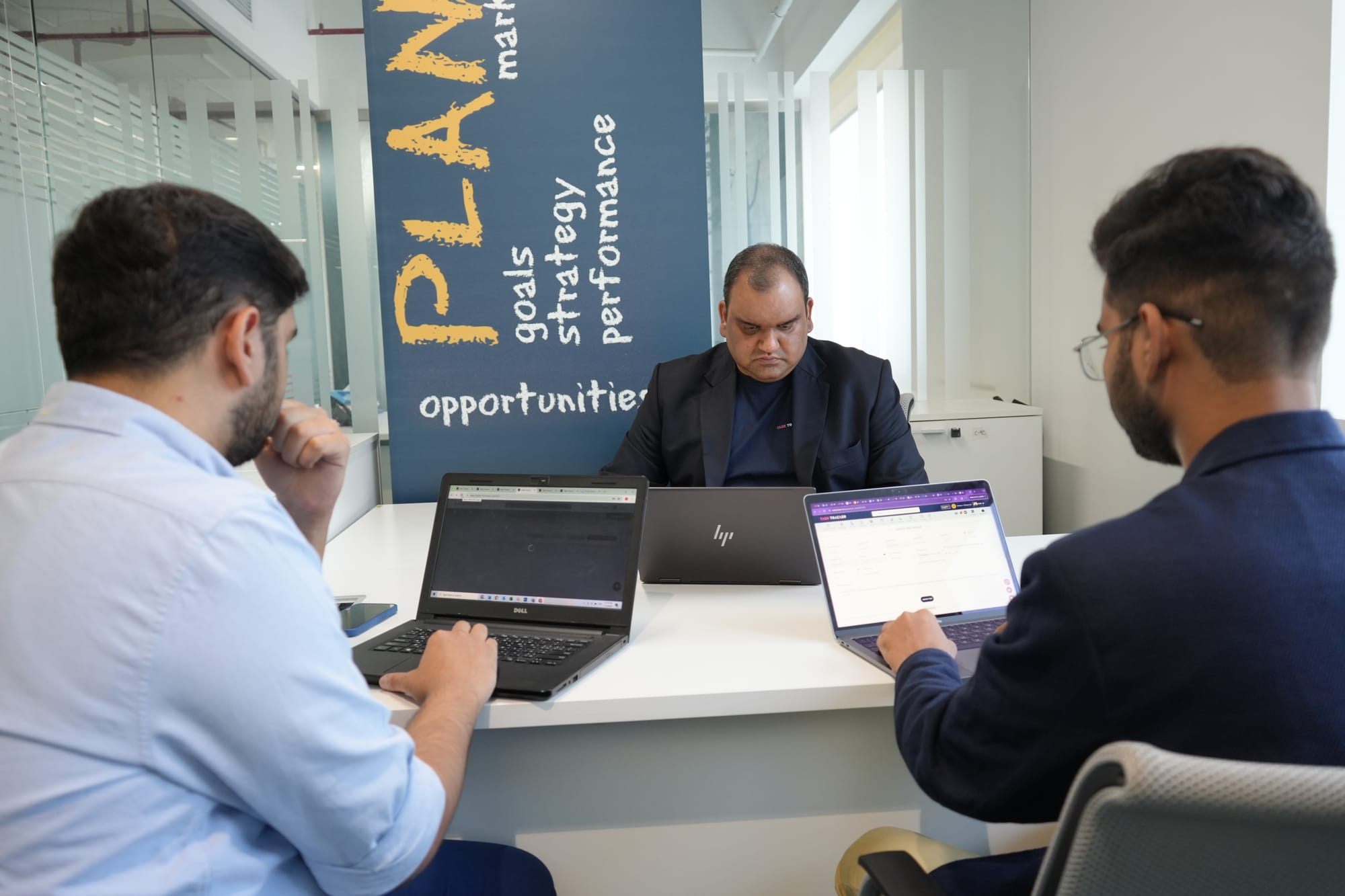
We see that Task Tracker Suite offers a multilingual interface in 8 languages, including Arabic. How has your multilingual approach helped user adoption and operational efficiency for your clients, particularly in diverse markets like India and the UAE?
This approach has been immensely beneficial. Our first few clients in this region specifically chose our solution because of its multilingual capabilities. They had a large setup in Ajman, with additional teams in Saudi Arabia, Oman, and a back office in India. Their challenge was communication—some team members were proficient in Hindi, others in their native languages, and some preferred English, while the region itself spoke various dialects.
With Task Tracker, they could all be on the same platform, consuming information in their preferred language. This unified approach has significantly improved communication, leading to smoother operations and sales processes. Businesses have seen a nearly 20% uptick in areas such as cost reduction and revenue improvement. While it is difficult to measure efficiency directly, the overall indicators are positive, showing that multilingualism has facilitated better collaboration and operational efficiency.
Is there a greater proportion of remote businesses using Task Tracker because this unique factor appeals to them?
That's the beauty of our product—we are sector agnostic. Anyone can use it, and it can be applied across various teams. This flexibility is particularly advantageous in a global market like ours. The strong selling point for us is the integration of WhatsApp communication. Users receive notifications, reminders, and reports directly on WhatsApp. We've designed the solution to be mobile-first.
Every time I speak to someone, they say, "Hey, you are an ERP or a CRM." But I always clarify that we are neither. We are not just an app for personal use either. We position ourselves somewhere in the middle, aiming to build a bridge between various countries, quite like Dubai itself. I think of us as the "Dubai of apps" because we facilitate connections and enhance communication across borders.
You recently hit the milestone of 12K users on the platform. Congratulations on that. What industries make up most of that number, and what proportion would be small businesses?
I would say the sectors that we operate in are quite diverse. In India, it's a bit different compared to the UAE, though there are similarities. In the UAE, we see a lot of manufacturing, trading, real estate, and facility management companies using us. Additionally, we are very popular with marketing agencies because they collaborate with different people across the globe and have repetitive tasks. So, I would say those are the sectors for us in the UAE.
In India, we see a lot of manufacturing as well. We also see healthcare usage in India, where smaller hospitals and clinics use us to manage their operations. We see a lot of accountants and users because, again, they have repetitive work that can be automated using Task Tracker. So, yeah, I think we have a good mix. But if you mention a sector, I'm sure we have a client there.
Out of our 12,000 paid users, 8,000 come from small and medium businesses, with the average being about 15 to 20 user licenses per company. Some companies have about 30 to 40 users, while some are as small as five.
How do you handle the common challenge of SMEs subscribing but not using the product?
To enhance user engagement and maximize the benefits of our tool, we employ multiple strategies. Monthly webinars for paid users focus on showcasing individual features and demonstrating their integration into business workflows. These interactive sessions allow users to engage with our team, ask questions, and gain deeper insights. Quarterly, our team offers personalized demos, additional training, and issue resolution, encouraging users to explore all functionalities. We track engagement through metrics like task creation and completion, which helps identify areas for improvement. New features, such as geofencing for location-based attendance and an AI-driven predictive tasking model, keep the tool relevant. Additionally, a scoring system rewards timely task completion, turning task management into an engaging experience. This multifaceted approach, including regular training, personalized support, innovative features, and motivational tools, significantly enhances user engagement and platform utilization.
Task Tracker is a young company founded in 2021. What has the year-on-year growth been like? What is your annual revenue/what is your average revenue per user (APRU) annually?
Our growth has been encouraging since the start. From the day we launched, we were revenue-positive, although not yet profitable. Last year was our first full financial year, and we achieved a revenue of over AED 500,000, with nearly 600 paid clients. In the last quarter alone, our growth rate exceeded 50% compared to the previous quarter. On average, each company spends about AED 1,500 annually, covering user packs of 10 to 15 individuals. These figures combine our performance in both the UAE and India.
How did your previous ventures, Script Technology and 1to1 Fitness, help develop Task Tracker, and what happened to Script and 1to1?
Script Technology no longer operates actively due to our commitment to a funded startup, making it unethical to continue using external investors' funds. We maintain one client on auto mode for sentimental reasons but don't seek new clients. Script Technology was vital in our journey.
1to1 Fitness was a failed venture as it was ahead of its time. Pre-COVID, the concept of online fitness training was met with skepticism, as people preferred in-person trainers. The venture didn't succeed due to the market's unpreparedness. The pandemic changed this perspective, highlighting the importance of timing and market readiness.
I've always had an entrepreneurial spirit, aiming to create meaningful innovations that improve lives. While making money and gaining recognition are important, making a societal impact is fundamental. Timing and market readiness are critical for success, as demonstrated by the differing fortunes of innovations like radio taxis and ride-hailing services like Ola and Uber.
Can you explain how these two apps or experiences helped you build Task Tracker?
From 1to1 Fitness, I learned two crucial things: the importance of timing and the concept of stickiness. The app didn’t succeed because it was ahead of its time; people weren’t ready for online fitness training pre-COVID. The stickiness factor, where users don’t want to leave once they start using a service, was another key insight.
With Script Technology, my experience broadened as a consultant traveling across Southeast Asia, digitizing businesses. This experience debunked the myth that small and medium businesses don't pay for digital solutions. The key is providing a valuable solution that is affordable and easy to use. From Script Technology, I learned that businesses will invest in tools that offer a clear, significant value.
The Task Tracker Suite consists of two components: Task Tracker and Sales Tracker. Which of the two is the more widely used product, and what did the production timelines look like? Currently, how many users does each product have?
The concept behind the Task Tracker Suite is somewhat unique. When you purchase a five-user package, you get five users for Task Tracker and five users for Sales Tracker, effectively providing ten user slots. We don’t differentiate between Task Tracker and Sales Tracker in terms of user allocation. This approach is inspired by Microsoft Office; when you buy Office, you’re not asked whether you’re using PowerPoint, Excel, or Word.
Task Tracker is more widely used since it's an older app. Sales Tracker was introduced nine months after Task Tracker, following feedback from users who wanted to automate sales processes with a smart, simple, and affordable solution. Consequently, Task Tracker has more usage, but Sales Tracker is rapidly gaining traction and establishing its own market.
In the UAE, the demand for Sales Tracker is growing, and usage is nearly equal to Task Tracker. In India, Task Tracker remains more popular as people tend to use traditional software for sales. Out of our 100 clients, 60 use both Task Tracker and Sales Tracker, while 40 use only Sales Tracker.
Sales Tracker is a more niche tool. Can you tell us how it helps a typical SME with a sales team spread across the UAE?
Sales Tracker has proven highly effective for startups, including our own, where it has helped triple our sales. We began by creating a repository for all incoming leads from digital marketing, referral partnerships, and one-on-one meetings, efficiently organizing data from the UAE and India. For instance, at GITEX last year, we tagged collected business cards as GITEX leads, creating a structured database for potential contacts. This approach highlights the power of organized data, aiding startups in correlating data from multiple sources.
Lead tracking is another significant benefit, allowing us to monitor the number of prospects and their stages in the pipeline. Sales Tracker simplifies managing this information, validating the product by tracking user engagement and sales. For founders with limited resources, Sales Tracker is invaluable for managing tasks and sales activities. It also helps monitor and manage sales teams effectively by tracking visits and client engagements and providing automated reports via WhatsApp.
These use cases demonstrate how Sales Tracker supports startups and small businesses in automating processes from day one, fostering a culture of efficiency and accountability.
Sales Tracker
Does Sales Tracker focus more on improving efficiency or helping SMEs save costs?
Sales Tracker is laser-focused on not just generating leads but effectively closing them. Our primary objective is to help you understand which leads you are closing, the average ticket size of these leads, and whether you are providing a "Wow" experience to your clients. Are you performing the necessary follow-ups—seven or five—on time? Ensuring this consistency will secure your sales.
Sales Tracker is designed to enhance your closing percentage and boost revenue.
While it contributes to productivity and efficiency, this aspect is more thoroughly covered by Task Tracker. Sales Tracker manages the entire sales process, from lead generation to overseeing the performance of your sales team. It ensures follow-ups are conducted, proposals are sent, targets are met, and sales visits are completed effectively.
You build your product in-house. What does the R&D budget look like in a good year?
Currently, we don't have a significant R&D budget. Instead, we rely heavily on user feedback, which we collect continuously. This feedback is organized into a matrix that we've developed. At the end of each quarter, we analyze the data to identify market needs and incorporate those insights into our features.
Although we don't have a dedicated R&D budget, we have someone in our office who constantly monitors our competition. While we would love to have a more robust R&D budget, we make the most of our current resources by listening closely to our users and responding to their needs.
Wondering what our clients think about us? Feeling grateful to share the testimonials from our valued clients. We love hearing from you! #tasktracker #successstory #testimonial pic.twitter.com/w5KtBKKUJZ
— Task Tracker Suite (@Tasktracker_in) May 27, 2024
A SaaS product requires continuous customer acquisition through digital marketing. How do you tackle this? Have you engaged with an external agency or internalized the process?
We handle almost everything in-house, except for some PR work that we've outsourced. We believe in owning our intellectual property and maintaining control. The dynamic nature of our startup means we need the flexibility to prioritize and adapt quickly, which can be challenging when relying on external vendors.
Our strategy combines a heavy focus on digital marketing with strategic partnerships. We've launched the Market Access Enabler program, allowing experts to leverage their communities to promote the Task Tracker Suite. This approach isn't solely digital; we also emphasize referral programs from existing clients, recognizing the power of word-of-mouth marketing. Many of these market access enablers are our current clients who help spread the word within their networks.
While digital and referral-based methods are our primary acquisition channels, we also participate in B2B exhibitions, though this constitutes a smaller portion of our strategy. Our goal is to ensure comprehensive coverage in our marketing efforts.
Being a startup, funding is essential to growth, and we’ve heard that you’re gearing up for a new round. How many funding rounds have you had so far, how much were you able to raise, and what does your current ask for the upcoming round?
We have successfully raised three funding rounds so far. We started with a pre-seed round and then completed two bridge rounds. In total, we have raised over $350,000 since our inception. Currently, we are in the process of raising an additional $500,000 in our new round. We have already received commitments from both existing and new investors and are confident that we will close this round very soon.
One of Task Tracker’s selling points is promoting a healthy work-life balance through business automation. Has this been the case for you, personally?
Yes, it has been very beneficial. For instance, when I want to take a break and then return to work, I don’t need to pick up the phone to start delegating tasks or having work discussions. Everyone has their own schedules and personal boundaries, and it’s important to respect that. With Task Tracker, I can assign tasks knowing that the team will see them at their convenience during working hours. This reduces unnecessary interruptions and pressure on the team, as they can prioritize their tasks without constant calls.
The transparency of Task Tracker is also a significant advantage. It allows me to quickly check reports and track progress from my mobile device, eliminating the need for a laptop or being in the office. This has made managing tasks and communication much smoother and more efficient for both me and the team.
You were recently awarded the NewGen Icon award at the Tally MSME Honours event. How do you feel about this achievement? How do you plan to continue as a top provider of innovative, easy-to-use business solutions?
I felt incredibly humbled and proud to receive this award, especially since the tools we developed often complement rather than compete with Tally by providing operational and sales support while Tally handles the accounting aspect. Being recognized by Tally for this synergy is a significant achievement for us, particularly at this early stage in our company's journey.
Celebrating excellence!
— Task Tracker Suite (@Tasktracker_in) June 27, 2024
Honoured to announce that our Co-founder & CTO, Rishab Chandra, has been awarded as "NEWGEN ICON" at the Tally MSME Honours 2024!
This prestigious recognition highlights our vision and leadership in the tech industry.#tasktracker #tallymsme #tech pic.twitter.com/imPot4zAQk
We are committed to continuous innovation and are already planning our third app to be added to our suite in the next 12 to 18 months. Our goal is always to provide more value to our customers and address gaps that other solutions might overlook. One of the exciting ideas we are exploring involves streamlining interactions with external vendors, a common challenge for small businesses, especially in tracking orders. There's also considerable interest from the e-commerce sector where enhancing customer service is crucial. Ultimately, the differentiator for businesses won't just be their products but the quality of their service, particularly customer service. We're focused on enabling smaller businesses to excel in this area, even before they're ready to adopt more comprehensive solutions like Freshworks.
Can you tell us a bit more about the third app you are developing?
At the moment, it's still just a concept. In our next interview, I’ll be happy to share more details as we develop it further and reach a stage where we can discuss it in depth. However, I can tell you that it involves enhancing our suite to address challenges with external vendors.
What does the future of workplace productivity look like – will there be no human touch? How do you see the landscape of SaaS products evolving in the next five years, particularly in the context of vernacular solutions and last-mile connectivity in emerging markets?
The growth of SaaS is just beginning. This is the golden period for SaaS, which was previously dominated by larger companies. Thanks to pioneers like Tally, Netflix, and Microsoft, the concept of paying for annual or monthly subscriptions has become the norm. For businesses today, growth is closely tied to automating their processes.
However, I don't foresee a future where human touch and thinking are entirely replaced. Despite advancements in AI, there's no substitute for the human brain.
Emerging economies are now the growth frontier, as developed nations hit stagnation with slower growth rates. The convergence of the internet, cloud computing, and AI will continue to make business processes easier and more efficient. Businesses must remain open-minded toward technology to survive and thrive in the next 20 to 30 years. Just as email became indispensable, so too will these new technologies. While this reality may seem both fortunate and unfortunate, it is the inevitable future of business.
We heard that you are a speaker and mentor for various events. Can you tell us about your motivation for this and what impact it has had on other budding entrepreneurs in the SaaS industry?
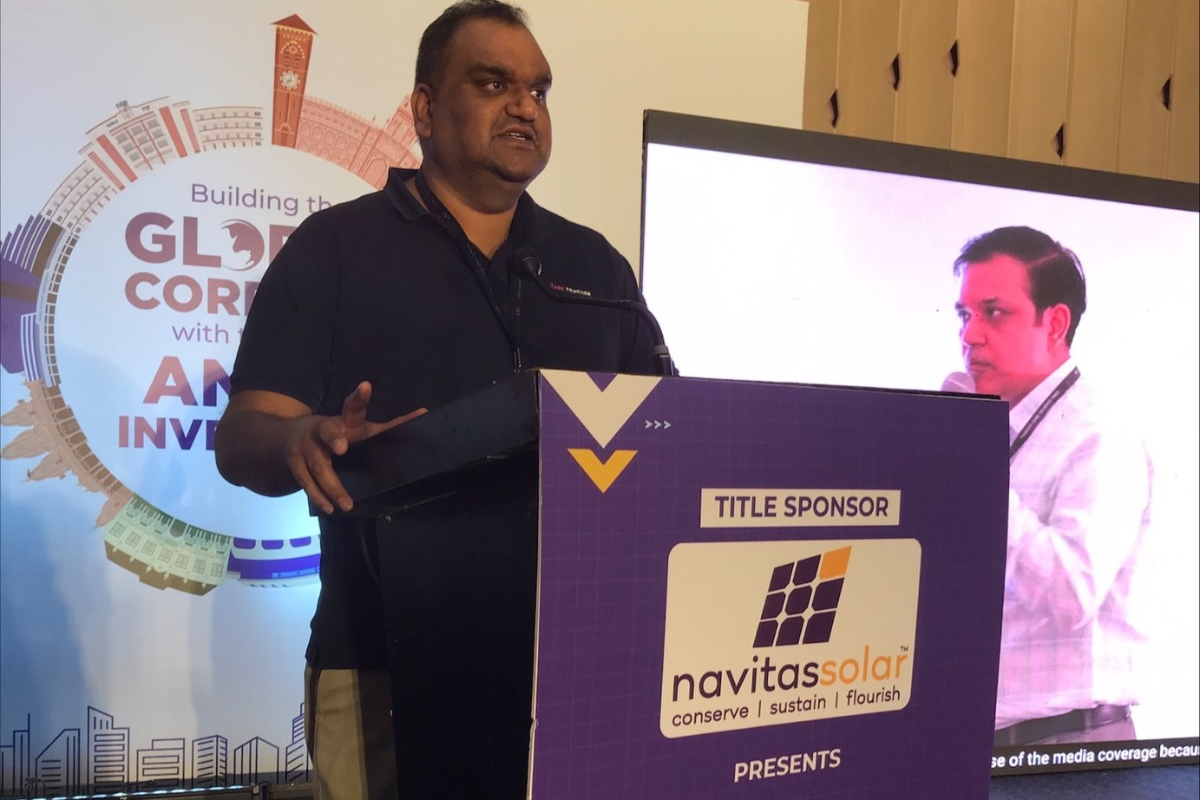
While I don't consider myself a mentor just yet, I enjoy sharing my knowledge and experiences. I've worked with various businesses, helping them digitize through e-commerce, SEO, and Google tools. Business owners often feel overwhelmed by information, and I aim to simplify things for them. I recall a moment when someone was confused about hosting, URLs, and websites, to the point of tears. I explained that hosting is like owning land, the website is the house built on that land, and the URL is the address. This analogy helped her understand, and she was relieved. My goal is to make complex concepts simple and comprehensible, much like how we designed Task Tracker Suite—easy to use and accessible for everyone.
Watch the interview:
Also Read:
